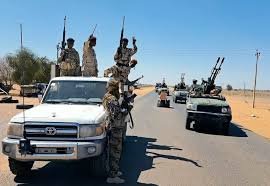Nigeria’s capital, Abuja, and its surrounding areas continue to grapple with severe fuel scarcity, resulting in long queues at filling stations and inflated prices at the pump.
The Independent Petroleum Marketers Association of Nigeria (IPMAN) has attributed this ongoing crisis to transportation logistics and poor road conditions.
IPMAN President Abubakar Maigandi, in an interview with Arise Television, explained the root causes of the scarcity.
He stated, “That is why you have been seeing that in Lagos there is no queue, it’s only in Abuja. And that one is because of the logistics challenges in terms of transportation from Lagos to Abuja.”
Maigandi highlighted that recent rainfall across the country, particularly in Lagos, has impeded the ability of trucks to lift products from depots.
He added, “The masses should not panic in buying because sometimes if there is any small distance, you will see people will start panicking. So actually there is product.”
The fuel crisis has led to a significant price hike, with some filling stations selling petrol for as high as N700 per liter. Many stations remain closed, while those open are experiencing extensive queues. Black market operators are capitalizing on the situation, selling fuel at exorbitant rates of up to N1,000 per liter in some areas.
The Explainer observed, this scarcity has had a ripple effect on transportation costs in Abuja. Fares for popular routes have seen substantial increases, with some rising by as much as 60%. Even the FCT Urban Transportation fare has increased from N300 to N500.
The situation underscores the ongoing challenges in Nigeria’s fuel supply chain. Despite being Africa’s largest oil producer, the country heavily relies on imported refined petroleum products due to the poor state of its domestic refineries.
The dependence on road transportation for fuel distribution, instead of pipelines, further complicates the supply logistics.
Maigandi revealed that ex-depot prices have risen to N715, contributing to the increased pump prices. He stated, “So whenever there is a small cut-off, no matter how small it is, like in Abuja here, they must be affected because the consumption is so high.”
IPMAN is currently in negotiations with the Nigerian National Petroleum Company (NNPC) and Dangote refinery to secure direct product purchases, potentially reducing costs.
Maigandi explained, “We have said that he [Dangote] should try and allocate certain product to us so that we can be able to buy directly because buying directly through him is just like getting a lower rate.”
As the scarcity continues, residents of Abuja and surrounding areas are left to deal with the inconvenience and economic impact of the fuel crisis.
The situation highlights the urgent need for sustainable solutions to Nigeria’s perennial fuel supply challenges.
























